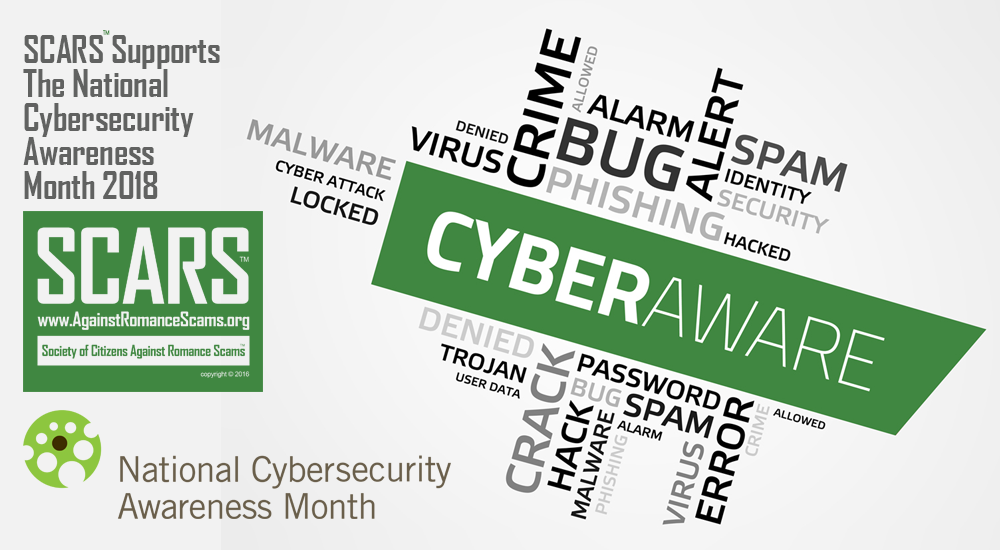ONLINE SAFETY: It’s Everyone’s Job To Ensure Online Safety At Work
The lines between our work and daily lives are becoming increasingly blurred, and it is more important than ever to be certain that smart cybersecurity practices carry over between the two. When you are on the job – whether it’s at a corporate office, local restaurant, healthcare provider, academic institution or government agency –‒ your organization’s online security is a shared responsibility.
A culture of cybersecurity in your organization includes all employees knowing how to protect themselves and the business from online threats.
HERE ARE SOME QUICK WINS THAT CAN MAKE YOU SAFER AND MORE SECURE AT WORK AND HOME
Keep a Clean Machine
Having the latest security software, web browser, apps and operating system is the best defense against viruses, malware and other online threats. Remember, mobile phones, point of sale systems and tablets need updating too!
Lock Down Your Login
Enable the strongest authentication tools available for your online business accounts, such as biometrics or a unique one-time code through an app on your mobile device. This security feature is also available on personal accounts such as email, bank and social media.
Back It Up
Put in place a system – either in the cloud or via separate hard drive storage – that makes electronic copies of the vital business information on a regular basis. At home, make regular backups of all your important docs, files and photos.
Bring Your Own Device (BYOD)
Now more than ever, employees are using their personal smart devices – such as PCs and smartphones – for work purposes. It’s important to consider where sensitive company, customer and/or employee data is being accessed and implement a policy to BYOD use.
When in Doubt, Throw it Out
Whether at work or in their personal lives, employees should know not to open suspicious links in email, tweets, posts, online ads, messages or attachments – even if they know the source.
Cybersecurity in the Workplace
is Everyone’s Business It’s not just the job of IT staff or business owner to ensure online safety at work. Creating a culture of cybersecurity includes ALL employees knowing how to protect themselves and the organization and understanding the cyber risks as the business grows or adds new technologies or functions.
National Cybersecurity Awareness Week 2018 Infographic
RESOURCES FOR KEEPING YOUR BUSINESS SECURE ONLINE
CyberSecure My Business™ – A nationwide program from the National Cyber Security Alliance (NCSA) helping small and medium-sized businesses learn to be safer and more secure online: staysafeonline.org/cybersecure-business
National Institute of Standards and Technology Cybersecurity Framework – Standards, guidelines and best practices to manage cybersecurity-related risk: nist.gov/cyberframework
Federal Trade Commission’s Small Business Resources – Videos, free bulk order resources, blog posts, email notifications and more to help you avoid scams, protect your computers and networks and keep your customers’ data safe: ftc.gov/about-ftc/bureaus-offices/bureauconsumer-protection/small-businesses
United States Computer Emergency Readiness Team (US-CERT) Resources for Small Business – Specially designed to help SMBs recognize and address their cybersecurity risks: us-cert.gov/ccubedvp/smb

RSN™ Team
a division of SCARS™
Miami Florida U.S.A.
END
WESTERN UNION REPAYMENT PROGRAM NEWS
FOR THE LATEST INFORMATION ABOUT THE WESTERN UNION REPAYMENT / REMISSION PROGRAM CLICK HERE – IT IS STILL OPEN FOR A PETITIONS FOR REPAYMENT
– – –
Tell us about your experiences with Romance Scammers in our Scams Discussion Forum on Facebook »
FAQ: How Do You Properly Report Scammers?
It is essential that law enforcement knows about scams & scammers, even though there is nothing (in most cases) that they can do.
Always report scams involving money lost or where you received money to:
- Local Police – ask them to take an “informational” police report – say you need it for your insurance
- Your National Police or FBI (www.IC3.gov)
- The Scars Worldwide Reporting Network HERE or on www.Anyscam.com
This helps your government understand the problem, and allows law enforcement to add scammers on watch lists worldwide.
Visit our NEW Main SCARS™ News & Information Facebook page for much more information about scams and online crime: www.facebook.com/SCARS.News.And.Information
To learn more about SCARS visit www.AgainstScams.org
Please be sure to report all scammers HERE or on www.Anyscam.com
All original content is Copyright © 1991 – 2018 SCARS All Rights Reserved Worldwide & Webwide – RSN/Romance Scams Now & SCARS/Society of Citizens Against Romance Scams are all trademarks of Society of Citizens Against Romance Scams Inc.






Please Leave A Comment - Tell Us What You Think About This!